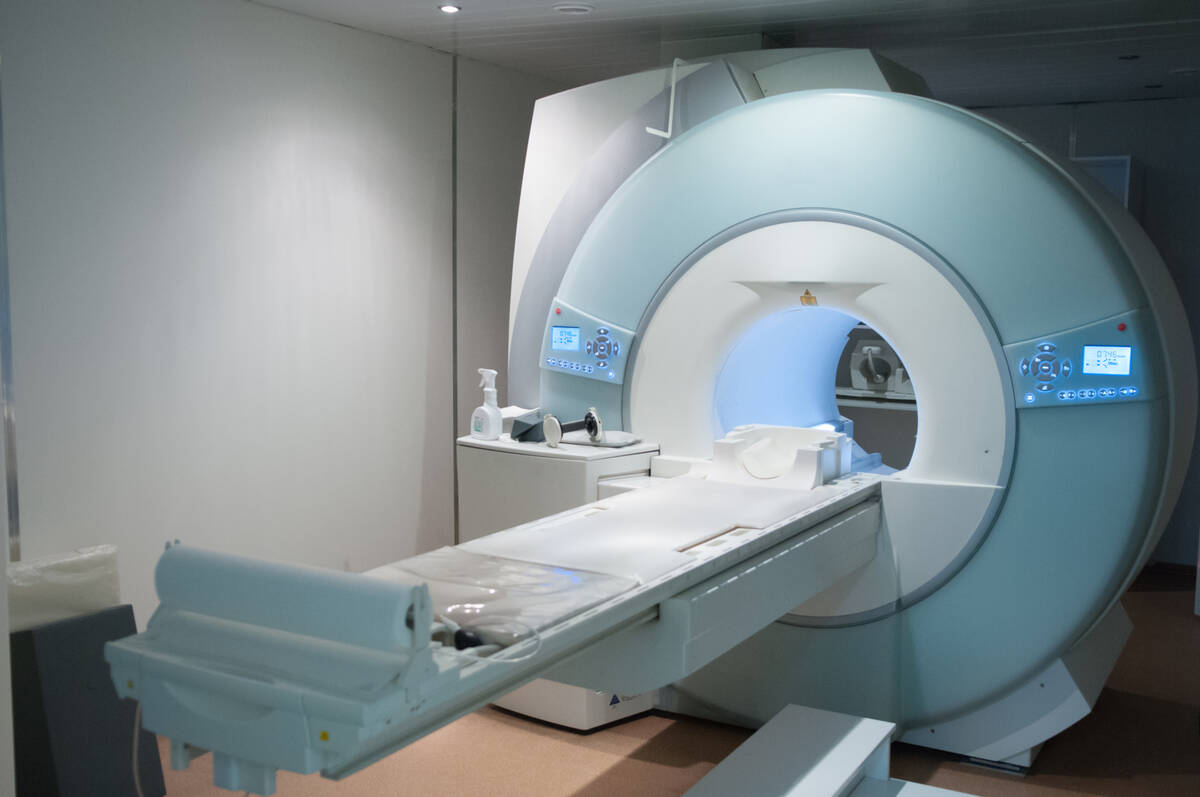Addressing 5 common questions about MRI exams
Question: I suffered an injury while working out and my primary care physician ordered an X-ray. However, after reviewing the results, my doctor recommended that I have an MRI. I am a very anxious person. Can you explain more about what this type of testing entails and what I can expect?
Answer: Understandably, any health care concern can lead to feelings of anxiety and nervousness. Depending upon the situation, your care team may begin with an imaging scan such as X-ray, which is a painless test that gathers images of the structures within the body. If additional information is needed — particularly of the organs or soft tissues in the body — an MRI may be ordered.
MRI, or magnetic resonance imaging, is a medical imaging technique that uses a magnetic field and radio waves to create a detailed image of the organs and tissues in the body.
People often come into an MRI with a lot of misconceptions and just as many questions. Below are the top five questions I hear. Hopefully this will help you understand what to expect when undergoing this radiology test.
How long will this take?
MRI exams take longer than X-ray and CT scans. Our routine appointment time is 45 minutes, though some exams could take as long as four hours to complete. There are many reasons for this extreme time difference. First, electromagnetism is used to create these images. We can only go as fast as the human body will magnetize. Second, the intention is to create the best imaging possible, which inherently means more time inside the scanner.
Why do I have to change my clothes and remove my jewelry?
MRI machines have superconducting magnets that generate heat and create an extremely strong magnetic field, so it is imperative to be safe. The magnets can pull ferrous objects, or those containing iron, into the machine with a large amount of force. This also can cause the machine to rotate and twist with the magnets’ flux lines. Nonferrous objects such as aluminum or copper will generate heat once inside the scanner, which may cause burns. There have been instances in which clothing has caught fire. To prevent any of these issues, we ask all patients to change into hospital-approved clothing and remove all jewelry and any devices such as cellphones, hearing aids and other items from the body.
My doctor said my implanted device is safe. Why do you need my information?
To ensure the safety of every patient and the technologists, it is important to know if certain devices, such as pacemakers, stimulators, clips or coils have been implanted inside the body. These devices often have generators or batteries and require an additional layer of safety to ensure that nothing interferes with the machine, its ability to obtain the most accurate imaging or our ability to keep you safe. When we know that a patient has an implanted device, we must adjust how the scanner operates based on the manufacturer’s guidelines. We also must ensure the device is placed in “MRI safe” mode before we begin scanning. If a patient were to enter the MRI environment without all of the safety measures being taken it could damage the device or burn or even shock the patient.
What, if any, injections am I going to receive?
During an MRI exam, many patients receive a contrast injection, which is used to help enhance the imaging. The injection typically is given through an IV and does not hurt or burn. Also, depending on the exam being performed, some patients may receive an injection of a drug called glucagon, which will help slow the motion within the abdomen so more precise images can be captured.
I am claustrophobic. What happens if I feel unsafe or unwell during an exam?
There is a camera inside the MRI tube so technologists can monitor you. Also, patients wear headphones so they can hear instructions and communicate with the technologists. If you feel unwell or anxious at any time during the exam, you can speak up, and staff will work to aid you. Also, for some patients, sedation may be available. If you are unable to have the MRI performed, the radiologist and your referring physician will consult one another and determine if another exam is more appropriate.
Another question I often hear relates to whether it matters which type of facility is visited to obtain an MRI scan. I always encourage people to speak with their health team about the reason for the scan and to seek out the best facilities to perform their imaging. There are different types of scanners, which can vary in terms of the magnet strength used to gather images. Depending upon the need of the patient and the part of the body being scanned (i.e., brain, spine, abdomen, knee), a specific scanner might be better suited to accurately view a patient’s anatomy and determine a diagnosis.
Fabian Gonzalez is a radiologist with the Mayo Clinic in Jacksonville, Florida.


















